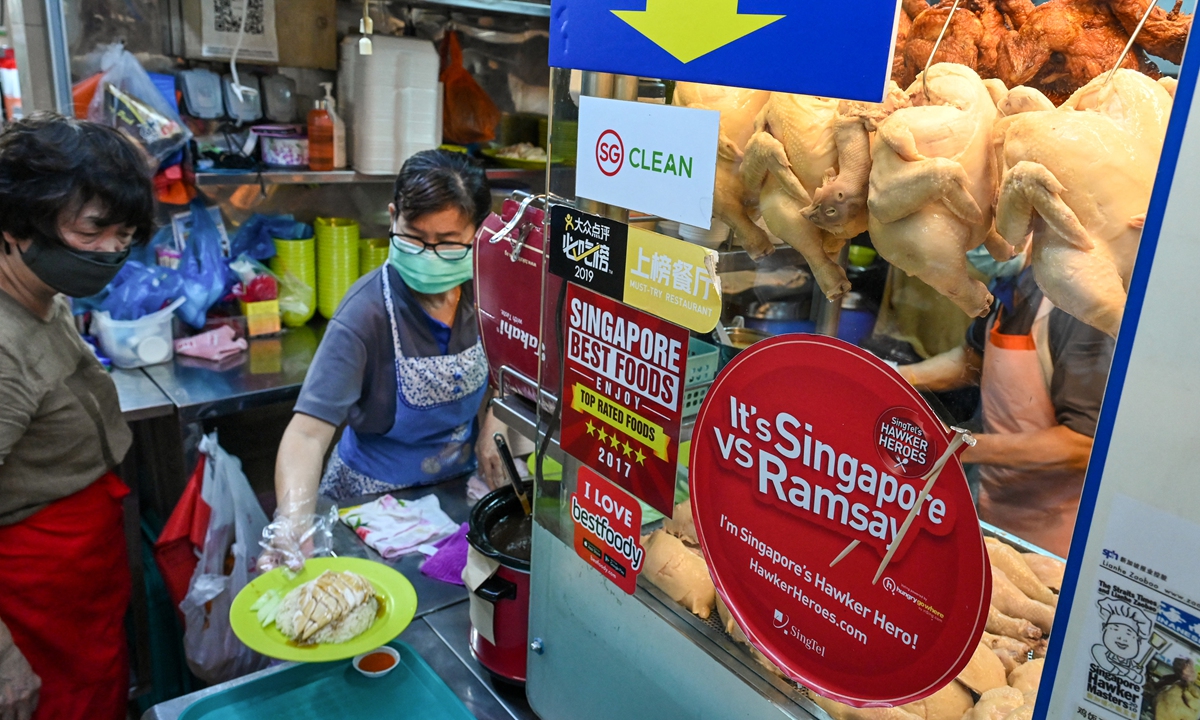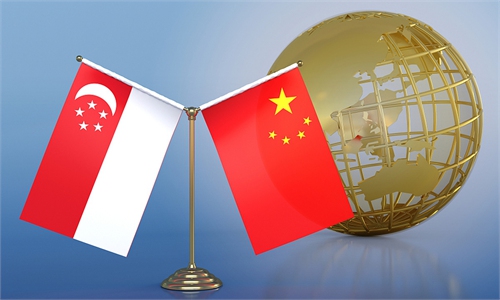Singapore’s de-facto national dish affected by export ban

A vendor prepares a plate of chicken rice at a hawker center in Singapore on May 31, 2022. Singapore imports a third of its chicken supply from Malaysia, which will halt the export of 3.6 million chickens a month from June 1 onward, amid surging prices and supply concerns. Photo: AFP
Singapore is bracing for a shortage of its de-facto national dish, chicken rice, as major supplier Malaysia halts all chicken exports from Wednesday.
Restaurants and street stalls in the city-state are faced with hiking prices of the staple food or shutting down altogether as their supplies dwindle from neighboring Malaysia, where production has been disrupted by a global feed shortage.
Malaysia's export ban is the latest sign of growing global food shortages as countries, reeling from the effects of the Russia-Ukraine crisis, extreme weather, and pandemic-related supply disruptions, scramble to shore up domestic supplies and tame food inflation.
Rising prices for basic food items have already fueled protests in countries like Argentina, Indonesia, Greece and Iran.
Daniel Tan, owner of a chain of seven stalls called OK Chicken Rice, said Malaysia's ban will be "catastrophic" for vendors like him. He added his stalls usually source live birds from Malaysia but will have to switch to using frozen chicken within the week and are expecting a "strong hit to sales" as customers react to the change in quality of the dish.
Singapore, although among the wealthiest countries in Asia, has a heavily urbanized land area of just 730 square kilometers and relies largely on imported food, energy and other goods. Nearly all of its chicken is imported: 34 percent from Malaysia, 49 percent from Brazil and 12 percent from the US, according to data from Singapore Food Agency (SFA).
A plate of simple poached chicken and white rice cooked in broth served with a side of greens is a dish beloved by the country's 5.5 million people, and is usually widely available for about S$4 ($2.92) at eateries known as hawker centers.
Reuters



